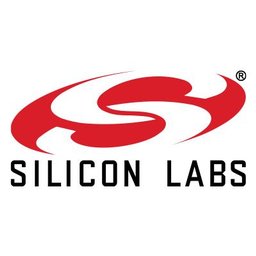Silicon Labs (NASDAQ: SLAB) is the leading innovator in low-power wireless connectivity, building embedded technology that connects devices and improves lives. Merging cutting-edge technology into the world’s most highly integrated SoCs, Silicon Labs provides device makers the solutions, support, and ecosystems needed to create advanced edge connectivity applications. Headquartered in Austin, Texas, Silicon Labs has operations in over 16 countries and is the trusted partner for innovative solutions in the smart home, industrial IoT, and smart cities markets. Learn more at
www.silabs.com
.
Meet the Team
The IoT Digital team is a state-of-art IC design team focused on producing world-class Wireless MCU SoCs. The architecture specification, design, verification, and implementation of the Wireless MCU SoCs is the responsibility of the IoT Digital team. These SoCs include an embedded CPU system with analog and digital peripherals, advanced security, state-of-the-art power management, and best-in-class radios to support a wide range of wireless IoT applications and standards.
The IoT Digital team is a state-of-art IC design team focused on producing world-class Wireless MCU SoCs. The architecture specification, design, verification, and implementation of the Wireless MCU SoCs is the responsibility of the IoT Digital team. These SoCs include an embedded CPU system with analog and digital peripherals, advanced security, state-of-the-art power management, and best-in-class radios to support a wide range of wireless IoT applications and standards.
As a Design Verification Engineer, you will be responsible for ensuring the correctness and functionality of complex digital designs, particularly those involving analog and mixed-signal components. Your expertise in cosimulation will play a crucial role in verifying interactions between digital and analog blocks. Below are the key responsibilities and qualifications for this role:
Duties & Responsibilities:
- Digital AMS Cosimulation:
- Develop and maintain a cosimulation environment that allows seamless verification between digital RTL (Register Transfer Level) modules and analog/mixed-signal models (SV, Verilog A, VAMS, C/C++) or spices netlist.
- Verify interactions, data exchange, and communication between these different representations of the design.
- Testbench Development:
- Create System Verilog-based VMM/UVM test benches for digital components.
- Specify testbench requirements and coverage plans.
- Implement constrained-random sequences, agents, and environments using UVM.
- Complex Verification Environments:
- Build and maintain complex and reusable verification environments using methodologies such as UVM and SystemVerilog (SV).
- Write comprehensive test plans and create test benches to execute those plans.
- Analyze coverage metrics, identify, and address test bench gaps, and run regressions.
- File bug reports as needed.
Qualifications:
Education: A relevant degree, such as a Master’s or Bachelor’s Degree in Computer Science, Electrical Engineering, Computer Engineering, or related fields.
Skills:
- Proficiency in System Verilog, Assertion-based Formal Verification and UVM.
- Familiarity with Verilog, Verilog A, C, and TCL
- Knowledge of industry-standard interfaces.
- Tools proficiency in Xcelium, Spectre, Questasim, Symphony
- Scripting skills in languages like Python or Perl is a plus
Experience:
Ideally, 10-15 years of industry experience.
Benefits & Perks:
You can look forward to the following benefits:
You can look forward to the following benefits:
- Employee Stock Purchase Plan (ESPP)
- Insurance plans with Outpatient cover
- Flexible work policy
#LI-Hybrid
#LI-DK1
Silicon Labs is an equal opportunity employer and values the diversity of our employees. Employment decisions are made on the basis of qualifications and job-related criteria without regard to race, religion, color, national origin, gender, sexual orientation, age, marital status, veteran status, or disability status, or any other characteristic protected by applicable law.
Report job


